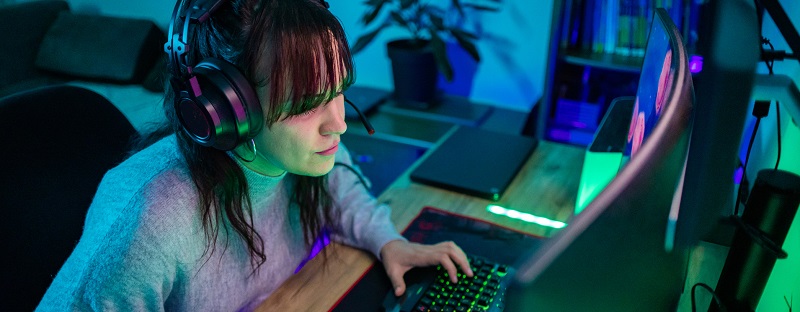Content
Computer and video games: German Patent and Trade Mark Office grants permission to collective management organisation for games industry

Verwertungsgesellschaft für die Hersteller von Games mbH (VHG) receives permission to operate – Remuneration by device manufacturers for private screenshots or recordings of gameplay in computer and video games – VHG is the 14th collective management organisation in Germany – DPMA has state supervision over all collective management organisations
Press release of 25 September 2025
Munich. In a decision dated 9 September 2025, the German Patent and Trade Mark Office (DPMA), in agreement with the Federal Cartel Office, granted the Verwertungsgesellschaft für die Hersteller von Games mbH (VHG) permission to conduct business. The purpose of the new collecting society is to assert the remuneration claims of computer game manufacturers granted by law. Such claims may exist if screenshots, film recordings or recordings of game actions are taken for private purposes. Computer game manufacturers cannot assert these claims without a collecting society. The VHG supports these creative professionals in the games industry in enforcing their legally guaranteed rights to their intellectual property and receiving the corresponding payments.
However, if game developers and publishers are entitled to remuneration in accordance with Sections 54 et seq. of the Copyright Act, this does not apply to individuals who save recordings of game play for private purposes on PCs or hard drives. The manufacturers of devices and storage media on which screenshots or recordings of game play are stored electronically are required to pay.
Like all collecting societies, the newly founded VHG acts as a trustee. The new collecting society offers its services to developers and publishers of computer and video games. These companies cannot and do not need to approach device and storage media manufacturers themselves individually in order to assert their rights.
The DPMA is not only responsible for authorising the business operations of the collective management organisations, but also supervises them in accordance with the Collective Management Organisations Act. An overview of all 14 collective management organisations licensed by the DPMA can be found here. The last licence was granted eleven years ago to the Gesellschaft zur Wahrnehmung von Veranstalterrechten mbH (GWVR).
The collective management organisations
Copyright protection arises directly with the creation of a work. However, it is often difficult for authors to enforce this intellectual property right. Collective management organisations support creative artists in this regard. Collective management organisations are associations of authors, publishers and owners of ancillary copyrights organised under private law. The ancillary copyrights regulated in the Copyright Act relate, for example, to the economic and organisational services involved in film production or the performance of a work. The rights holders grant the respective collective management organisation their copyright usage rights and remuneration claims.
Collective management organisations are subject to government supervision with regard to their monopoly and fiduciary position. The DPMA exercises this supervision in the public interest and on the basis of the Collective Management Organisations Act (VGG).
The German Patent and Trade Mark Office
Inventiveness and creativity need effective protection. The DPMA is the German centre of expertise for all intellectual property rights – for patents, utility models, trade marks and designs. As the largest national patent office in Europe and the sixth largest national patent office in the world, it represents the future of Germany as a country of inventors in a globalised economy. Its approximately 2,800 employees at three locations – Munich, Jena and Berlin – provide services to inventors and companies. They implement the Federal Government's innovation strategies and further develop national, European and international protection systems.
Picture: getty images/Dusan Stankovic
Last updated: 25 September 2025

Not only protecting innovations
Social Media